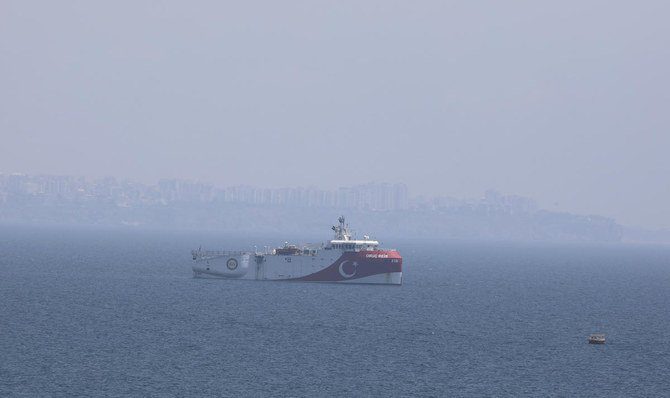
By Zeynep Bilginsoy | APJuly 28, 2020 at 5:55 a.m. EDT
ISTANBUL — Turkey will suspend research for oil and gas exploration in disputed waters in the Eastern Mediterranean that abruptly raised military tensions with neighboring Greece, a top Turkish official said Tuesday.
President Recep Tayyip Erdogan told his aides to “put this on hold for some time,” presidential spokesman Ibrahim Kalin told Turkish broadcaster CNN Turk.
Last week, Turkey announced plans to dispatch research vessel Oruc Reis and two support ships to carry out operations through Aug. 2 south of the Greek islands of Rhodes, Karpathos, and Kastellorizo. The islands are close to Turkey’s coastline.
The declaration on Navtex, the international maritime safety system, angered Greece and prompted criticism by the United States, France, and other European countries.
“Greece gave an extreme reaction after our Navtex as if we will go occupy Meis Island (Kastellorizo),” Kalin said on CNN Turk. He said the planned area of exploration stood about 180 kilometers away from the small island.
“Nevertheless, our president said ’since these negotiations are continuing, let’s see what happens and put this on hold for some time,” Kalin was quoted as saying.
NATO allies Greece and Turkey are at odds over drilling rights in the Eastern Mediterranean.
Turkey has accused Greece of trying to exclude it from the benefits of potential oil and gas finds in the Aegean Sea and Eastern Mediterranean, arguing that sea boundaries for commercial exploitation should be divided between the Greek and Turkish mainlands and not include the Greek islands on an equal basis. Athens counters that Turkey’s position is a violation of international law.
Serhat Guvenc, professor of international relations at Kadir Has University in Istanbul, said the presence of elements of the U.S. Sixth Fleet for naval exercises in the area contributed to Turkey’s decision to suspend the exploration — which he called a “strategic retreat” by Turkey.AD
The Dwight D. Eisenhower Carrier Strike Group participated in surface exercises with the Greek navy between July 24-28.
“This was the direct result of the U.S. involvement, although the message was subtle and there was never an overt threat either against Turkey or Greece. But the presence of such a formidable and sizable U.S. naval force gives a clear message that Washington cannot afford to see a crisis between two of its allies turning into a hot conflict,” Guvenc said.
Kalin emphasized the need for negotiations, saying bilateral issues with Greece should be solved through dialogue rather than through threats on Turkey’s bid for European Union membership.
He also suggested: “Everyone should continue working on their own continental shelves and conduct joint work in contested areas.”
In Athens, Greek government spokesman Stelios Petsas welcomed Turkey’s decision. He described the latest research mission as “illegal” but added that he hoped the two countries could have substantive talks.AD
“This is a positive development,” Petsas told private Skai television. “We want to have open channels of communication with Turkey and to discuss the issue that has been plaguing the two sides for many decades now: The demarcation of maritime zones. This is the issue, which of course needs the proper framework to move forward.”
The two historic regional rivals have come close to war three times since the early 1970s, including over offshore exploitation rights, ownership of an uninhabited Aegean Sea islet. The most serious confrontation was in 1974, when Turkey invaded the Eastern Mediterranean island nation of Cyprus, following an abortive coup by supporters of union with Greece.
Germany has led a diplomatic effort between the two sides, and earlier this month hosted a meeting that included Kalin and the head of the Greek prime minister’s diplomatic office. The meeting, held in Berlin, was revealed several days later by Turkish Foreign Minister Mevlut Cavusoglu.AD
“The game changer was the US policy of using the proverbial big stick in dealing with Turkey and Greece,” Guvenc said, adding that “Germany had little means to stop a naval confrontation between the two countries.”
___ Derek Gatopoulos in Athens contributed.
___ Follow Bilginsoy at
Copyright 2020 The Associated Press. All rights reserved. This material may not be published, broadcast, rewritten or redistributed without permission.


Leave a Reply